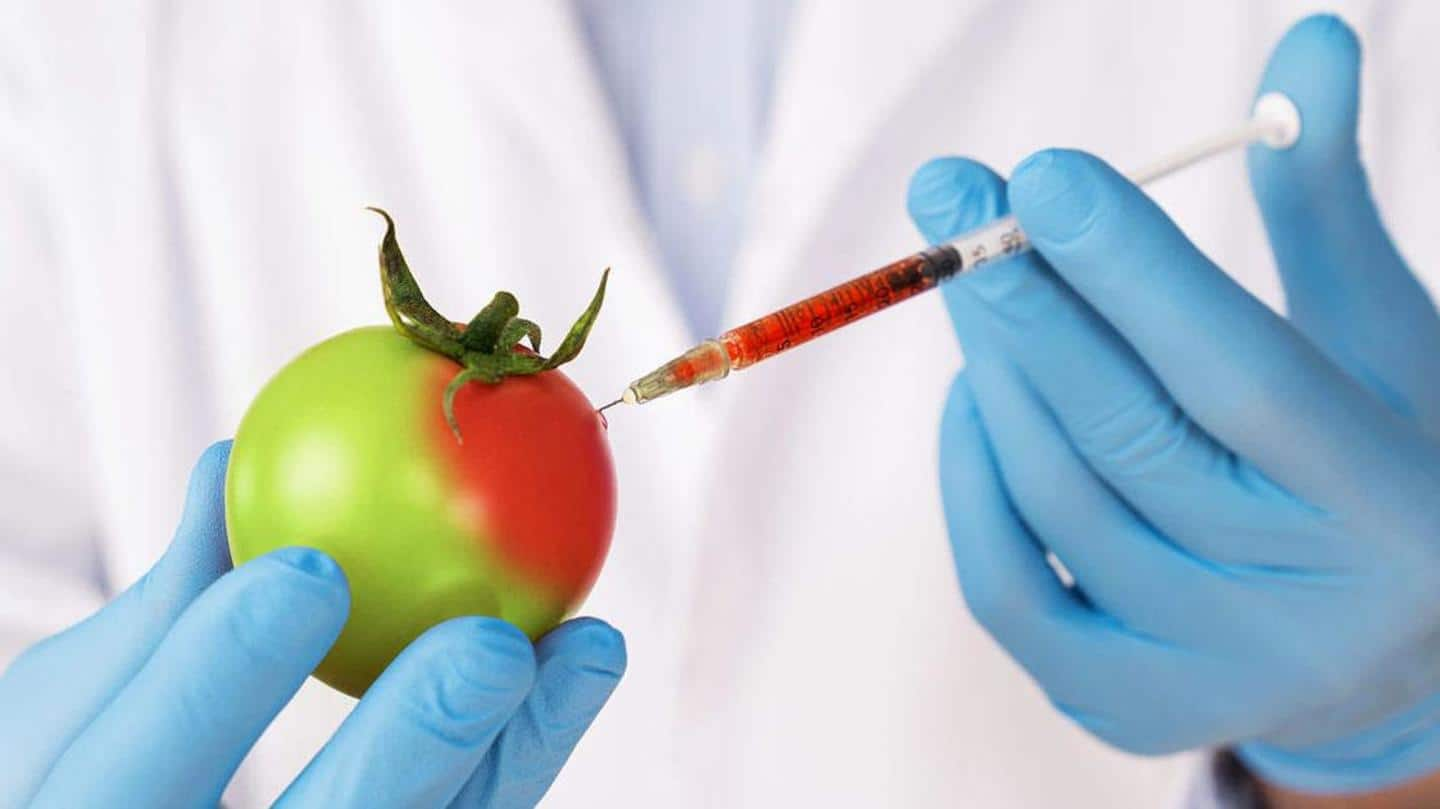
Everything you must know about Genetically Modified Organisms or GMOs
What's the story
Conventional methods of breeding such as selective breeding and crossbreeding might tag certain unwanted traits alongside desired characteristics. In genetic modification, however, the genome of an organism is altered in order to achieve desired physiological traits. This specifically targeted modification of DNA in Genetically Modified Organisms (GMO) makes it a better option than traditional methods as there are no unwanted characteristics in the end.
Agriculture
GMO techniques in agriculture help nurture specific traits in crops
Selective breeding of crops yields the desired result after a number of generations and it comes with the added challenge of scientists struggling to understand which genetic change has led to the new trait. GMO techniques, however, use scientific techniques to impart the plant with a specific trait. Apples, soy, corn, and cotton are some common examples of genetically engineered foods in the market.
Livestock
It provides for better quality and nutritional feed in livestock
With increasing urbanization and rising income, demand for animal products such as meat, eggs, and dairy products are on the rise globally. This means the need for genetically modified feed for livestock is on the rise due to its improved quality and better nutritional benefits. The most commonly used GMO crops in animal feed and pet food are corn, canola, soybean, and cottonseed.
Medicine
Becoming a safe, inexpensive treatment option for diseases like cancer
GMOs can offer a safe and inexpensive way to provide vaccines, particularly in lesser-developed regions of the world. Also, genetic modification of humans via gene therapy is becoming a promising treatment option for cancer, cystic fibrosis, etc. With several studies supporting GMOs, genetic researchers believe that gene therapy is one of the safest and most effective measures to cure diseases and ameliorate suffering.
Plus points
Advantages: Extra nutritious, fast-growing, and more resistant to pests
GMOs are designed to be extra nutritious, fast-growing, and more resistant to pests. Most GMOs are engineered to have an innate pesticide and hence, this significantly reduces the number of pesticides sprayed on them. With GMOs, farmers can produce the same amount of food using lesser resources than conventional crops. GMO crops are designed to provide more vitamins and minerals than traditional ones.
Minus points
Disadvantages: Can trigger allergic reactions, resistant to antibiotics
GMO foods contain DNA from other organisms and this can trigger an allergic reaction in some people. The addition of certain DNA into the plant makes it resistant to antibiotics. Research suggests that when these foods are consumed, the DNA goes from our bodies to feces and can get absorbed by harmful bacteria in your gut or the sewer, causing serious diseases like staph infections.